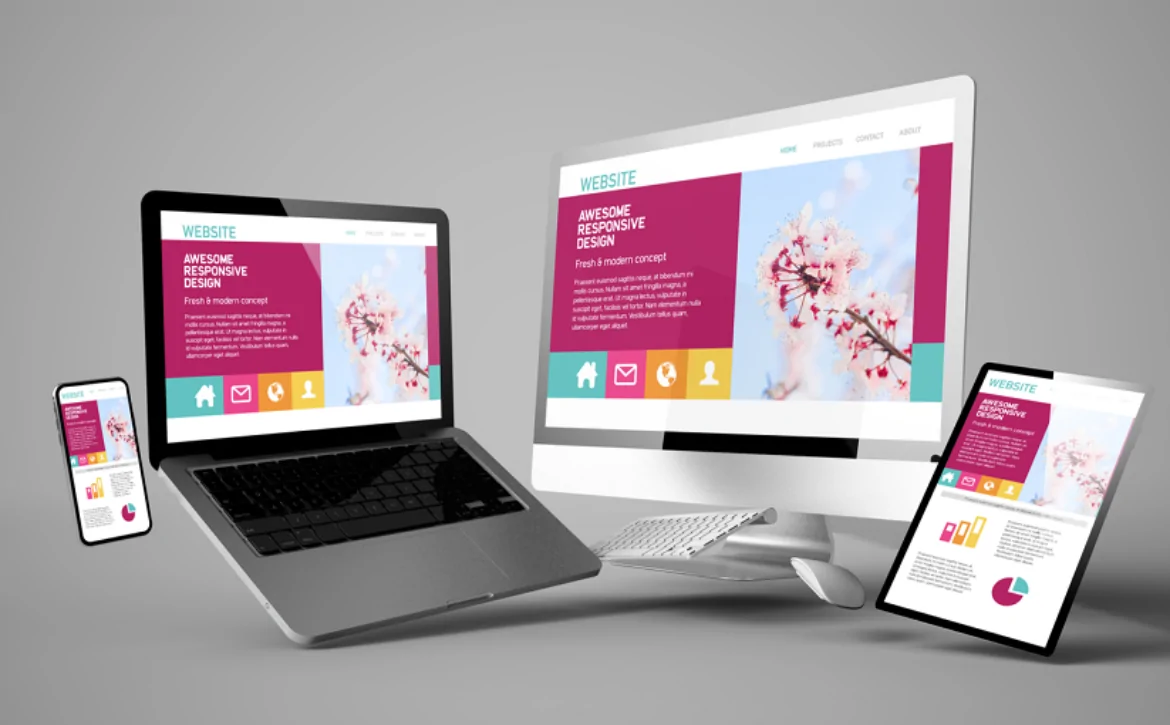What Is Custom Web Development and Why Does Your Business Need It
In today’s hyper-connected world, your website is often your first impression — and we all know first impressions count. Whether you’re a local bakery or a SaaS startup, your online presence can make or break your business. The rise of website builders like Wix, Squarespace, and even Webflow has made it easier than ever to get a website up and running. Still, there’s one major problem — they often come with limitations that can hinder your brand’s uniqueness and long-term growth. Custom web development isn’t about slapping together a few templates. It’s about building a site from the ground up, tailored precisely to your brand, functionality needs, user goals, and future growth.
Think of it like tailoring a suit — sure, you can buy one off the rack, but the custom-made one fits like a glove and makes a lasting impact. This article will break down exactly what web development is, how it differs from drag-and-drop website builders, what to expect in terms of cost, and why it’s becoming increasingly important for businesses that want to grow — not just exist online. Whether you’re looking to hire custom web development companies, explore web development jobs, or understand how web development software works, we’ve got you covered.
What Is Custom Web Development?
At its core, web development means building a website or web application from scratch — no templates, no restrictive plugins, no design compromises. Every line of code is written specifically for your needs, ensuring your site is as unique as your business.
It’s not just about looks, either. Web development can involve creating specific functionalities — like a unique e-commerce checkout process, booking systems, user dashboards, or integrating complex APIs — all crafted with your users in mind.
In contrast, traditional website builders or CMS platforms often limit what you can do. Sure, they’re great for launching quickly, but if you need to scale, personalize the user experience, or streamline operations, those platforms often hit a wall. That’s when custom development becomes the smarter route.
Key Benefits of Custom-Web Development
1. Tailored User Experience
Whether it’s a seamless checkout, intuitive navigation, or personalized content display, you’re in full control — no workarounds necessary.
2. Better Performance and Speed
Pre-made templates and third-party plugins often slow down your website. A custom-built site uses only the code you need, which translates to faster load times and improved SEO.
3. Stronger Branding
Custom websites offer complete freedom in design. From fonts and animations to custom web development images and layouts, your site can reflect your brand identity without compromise.
4. Scalability and Flexibility
A custom site can evolve with you. You’re not boxed into what a website builder or theme allows.
Who Needs Custom-Web Development?
While not every business may need a fully custom site, it’s especially beneficial for:
- E-commerce platforms with unique product offerings or workflows
- Enterprises requiring integration with internal systems
- Agencies and service businesses that need high functionality and SEO performance
- Companies exploring advanced tools like custom web development software
If your website is more than just a digital brochure — if it’s central to your operations, sales, or customer engagement — web development is worth the investment.
Exploring Custom Web Development Jobs & Companies
With demand rising, there’s a growing market for web development jobs — from full-stack developers to UI/UX specialists. Talented individuals and teams are working across the globe to deliver custom solutions to businesses of all sizes.
Partnering with web development companies can also make a huge difference. These companies bring together developers, designers, strategists, and testers who work together to bring your vision to life. A reliable partner ensures that the final product isn’t just functional — it’s user-friendly, secure, and optimized for performance.
What About Webflow?
Webflow often enters the conversation as a middle ground between templates and full custom builds. It’s a visual development platform that gives you more control than basic builders but doesn’t always provide the deep customization some businesses need.
Webflow is fantastic for small to medium-sized projects or for companies that want more design flexibility without diving deep into code. However, for highly specialized functionality or enterprise-scale systems, traditional custom development still reigns supreme.
What’s the Custom Website Development Cost?
Let’s address the elephant in the room: custom website development cost. The cost depends on complexity, required features, integrations, and design needs. Basic custom sites may start around $5,000 to $10,000, while more advanced solutions can easily reach $50,000 or more.
It might sound steep, especially compared to a $29/month website builder. But here’s the trade-off: you’re not just paying for a website — you’re investing in long-term growth, improved user engagement, and streamlined operations.
Think of it like buying a tailored suit for your business. It’s an upfront cost, but one that delivers long-term value.
Common Myths About Custom Web Development
- Myth: It’s only for big companies.
Truth: Even small businesses benefit from tailor-made features that improve customer experience. - Myth: It takes too long.
Truth: Yes, it’s not instant — but a good developer or agency will keep timelines tight and transparent. - Myth: Website builders can do the same thing.
Truth: They’re great for basic needs, but custom solutions outperform in performance, branding, and scalability.
To sum up, in a crowded digital landscape, standing out requires more than just being online — it requires intention, functionality, and a site built for you. . Businesses may adopt a genuinely customized online presence and transcend the limitations of generic themes with custom web development. Whether you’re exploring web development jobs, searching for web development companies, or simply trying to figure out if a website builder will cut it — remember this: a website isn’t just a page. It’s an experience, a sales tool, and often, your first conversation with a potential customer.



